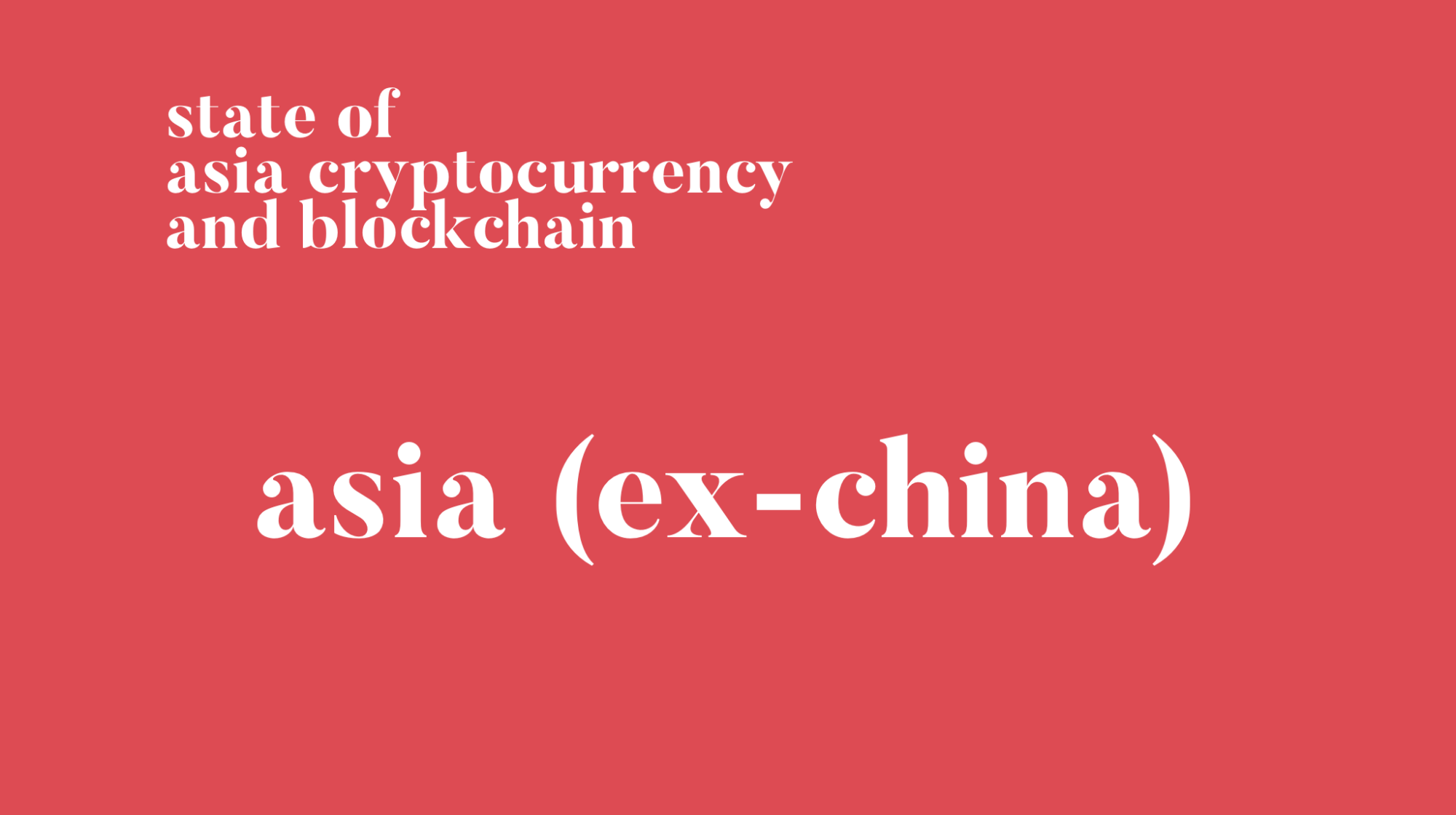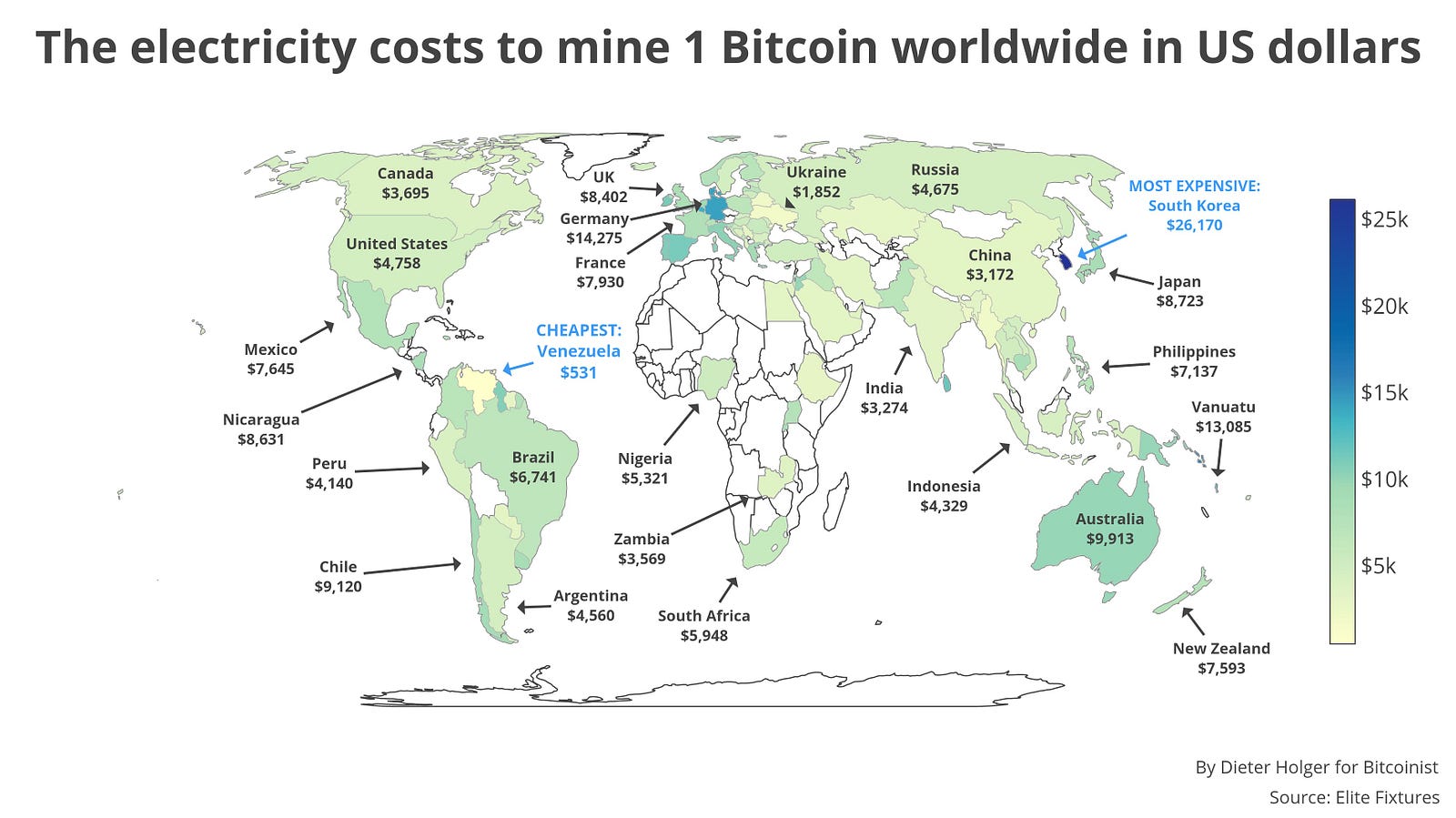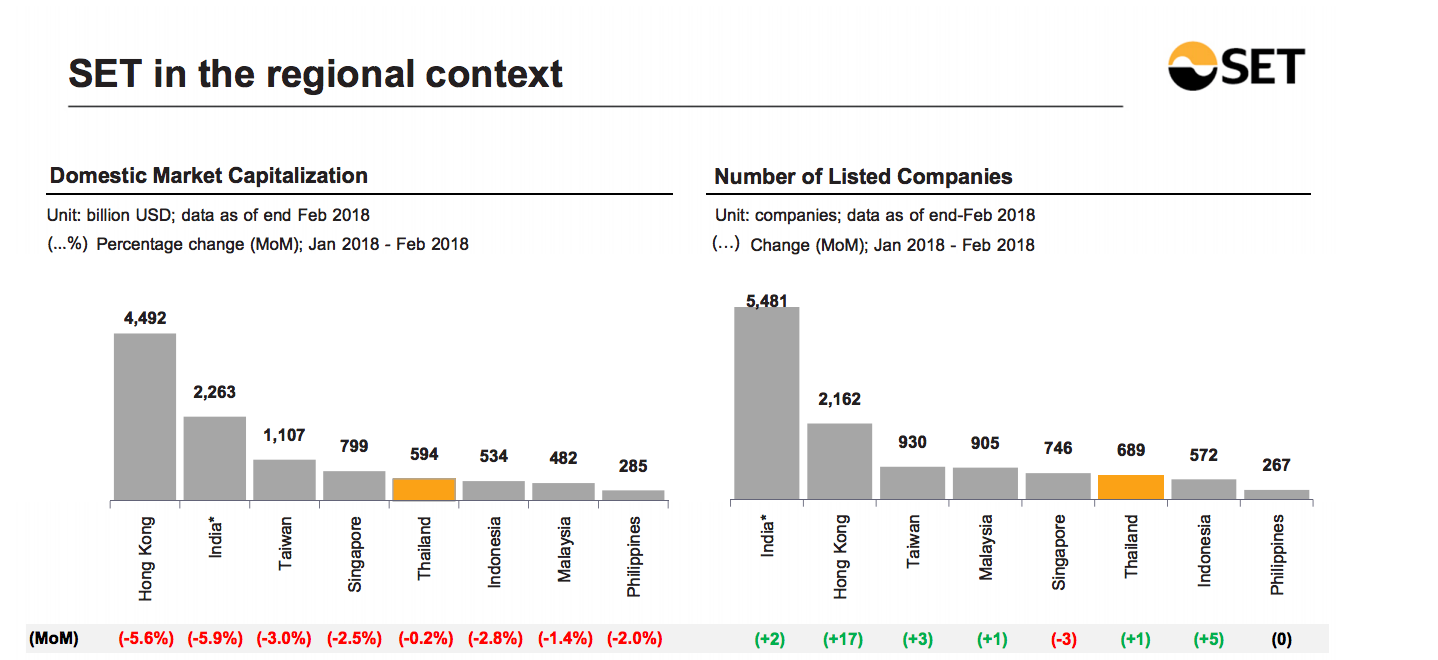State of Japan, Korea, and Thailand- January Edition

Last week, we shared our thoughts on the most recent important happenings in China. This past weekend, we highlighted the most important developments in the rest of the Asian countries, specifically, Japan, Korea and Thailand.
The Quick Take
Since December, general Crypto market slowdown has affected the primary businesses making up the Korea and Japan crypto ecosystems- the exchanges. Korea seems to have been hit the most, while Japan’s cautious stance towards exchanges in the last year has helped with damage control. Mining businesses have been hit across the board in Asia, and we are seeing a consolidation in the Japanese mining business as they move their operations to China in an attempt to stay afloat.
Separately, in Southeast Asia, we see Thailand regulators continuing to be aggressive about building a crypto-trading infrastructure, and we are potentially going to see the first kind of stock exchange/crypto exchange hybrid there. Thailand will be an ongoing interesting area to focus on in 2019 for ICOs, along with Singapore and the rest of Southeast Asia market.
Check it out and let us know if it’s helpful for you. Thank you for reading.
KOREA
2019 Predictions
Given cryptocurrency ecosystems in Asia are somewhat silo-ed by country, we had a few experts from the industry sharing their predictions for 2019. Here is what they’ve said about Korea:
In gaming, Cryptokitties co-founder Benny Giang specified that “Korean market will have consolidation amongst technology and crypto businesses next year. There will be a huge effort amongst some of the top gaming companies to break into this space. What this means as a whole, is that Korea will be leading the way for consumer adoption in the earlier part next year. Lots of questions will be raised such as decentralized systems being slow vs semi-centralized systems with mass adoption.” Jehan Chu, founder of Kenetic Capital, also noted that “Korean gaming will demonstrate some of the first large-scale user adoption of crypto”.
In my podcast conversation with investor Alex Shin from Hashed, on his Outlook for Korea and it’s Regulator Role in the Crypto Markets in 2019, Alex’s 2019 take on Korea in relation to the US is that “there’s just a lot of US founders understanding this is a global phenomenon and they want access to Asia, so I think that thesis still remains the same. We try to pick up on a lot of new ideas that are coming out in the US and see if there are teams in Asia that want to play a very localized version of that. It’s a very distribution play. It’s sort of the way I see Asia, I see Korea, I see Japan.”
Alex also touched on the nature of the crypto market in Korea- “As the general sentiment for utility token approaches zero or negative zero depending on how you want to look at it, what we have left in Korea is a consumer market that understands crypto assets. So we’re generally bullish that people there will adopt new technology much faster than anywhere else […]South Korea is so homogeneous. Get 50 people who really matter to care about what you’re doing and a week later, the whole country will know.”
To listen to the whole podcast, check it out at the iTunes.
What’s been happening in the last month in Korea:
In the last month, we are seeing the bear market affecting the exchanges, where increasing scrutiny has brought about company layoffs and legal prosecutions.
BTC Korea, the operator of Korea’s largest cryptocurrency exchange Bithumb, laid off 30 employees, or ~10% of staff, mainly due to the drop in cryptocurrency and traffic volume. The resigning 30 people will receive a typical severance plan.
One official of the company commented on the layoffs: “[it’s] not because we are undergoing difficulties, although it’s true that the market isn’t doing so well,” […] “But yes, we thought it best to have a fresh start since our transaction volume is decreasing.”
Additionally, the largest Korean exchange Upbit was brought to trial on charges of earning about US$133.7 million through fake virtual currency transactions worth ~$250billion.
Apparently, the prosecutors launched an investigation into
Lastly, South Korea’s Financial Services Commission is looking to a launch fintech sandbox in April. The “Regulatory Sandbox,” is a testing environment used to ensure regulatory compliance and security checks for financial operations. The first blockchain service to apply for the regulatory sandbox was Moin, a Blockchain-based global money transfer service in Asian countries.
What this means:
Back in November, we noted that Bitcoin trading to Korean Won (KRW) dominated BTC to fiat daily spot volumes, representing 50% of all volumes on average. But as the retail market came to a halt, the exchange saw difficulties. Trading in Korean Won decreased significantly in December.
The boom and bust cycles of these Korean exchange are extremely reactionary and very quick to reflect the market. We saw this with the case of BTC and
We can expect ongoing trading volumes scaling up and down quickly in the Korea market, but the volatility is something that we don’t believe is sustainable for any businesses. If they want to grow, these exchanges will likely try to diversify their businesses in 2019, or simply continue to operate on a small scale.
Additionally, we are seeing now legal prosecution with exchange posing fake volumes, which has not happened in China or anywhere else. The Seoul Southern District Public Prosecutors’ Office indicted three
Lastly, the regulatory sandbox proposed for April 2019 is a must-have for Korea. As we see other countries forming their own sandboxes, it appears that a country as technologically advanced as Korea should have their own sandboxes. The regulatory sandbox will allow
To learn more in detail about the different exchange and investment players, check out this comprehensive report by OneAlpha on Korea’s blockchain landscape.
Japan
2019 Predictions
Similar to Korea, we had a few experts from the industry sharing their predictions for 2019 on Japan:
For one, Obi from CryptoAge from Japan has reminded readers to pay attention to “the integration with traditional businesses in countries like Korea and Japan”.
Miss Bitcoin Mai, another Japanese local who has been super involved in Bitcoin and Bitcoin cash in Japan, says: “in 2018,
Also, what is hot in Japan?—?a dapps game “My Crypto Heroes” is going to start TV commercial in next year. I know everyone likes Japanese game, for example Pokemon and Mario Kart. So, I think Japan can contribute the mass adoption of blockchain by dApps. Since ever, speculation was the only thing everyone was interested in, but please pay attention to the collaboration of game and geek contents related to Japanese original culture.”
Furthermore, on the gaming side, Cryptokitties’ Benny Giang has highlighted that “Japan’s largest tech companies have secretive R&D teams. From my perspective, I don’t think a lot of the efforts will translate into new business lines in 2019. However, there is a handful of experienced veteran game producers who have formed their own blockchain gaming studios. A lot of high-quality blockchain games will be released in Japan late Spring to Summer of next year. This will set a new standard for a hybrid on chain/off chain blockchain games.”
What’s happening in Japan in the last month:
Akin to what Mai said above, Japan is so ahead of other countries when it comes to dealing with cryptocurrencies issues on the regulatory, business and cultural front. As a result, in the last half year, we have seen the country making better regulatory decisions and implementing more rigid practices based on what they’ve learned. For one, they have set a higher bar for exchanges to get licensed. Nevertheless, we continue to see the overall macro environment taking a toll on the conglomerates’ businesses, which subsequently is leading to consolidation in their mining businesses and pushing local mining busineses out of Japan.
In late December, Japanese IT giant GMO Internet Group released the latest monthly disclosure on its in-house crypto mining operations, confirming that it took a steep hit in overall mining revenue. Citing “extraordinary loss” in Q4 this year, GMO, which began its foray into Bitcoin mining in 2017, said that it will “no longer develop, manufacture and sell” miners. The company further claims that it’s looking to relocate its mining operation “to a region that will allow us to secure cleaner and less expensive power supply.”
In December, we also saw the FSA granting the first license to a crypto exchange since 2017. Japanese crypto exchange Coincheck, which suffered a $530 million hack in January of last year, just received approval to operate again in Japan.
What this means:
Mining companies across the board have been suffering, we discussed in specifics of the poor mining environment among the largest miners in our last report about China. Therefore, we were not a surprise when we saw GMO also making the announcement to shut down its mining business.
We suspect there will be a consolidation of mining operations in Asia, and all the Asian countries will start gravitating towards China. Recently, Japanese crypto firm Ginco has announced that they are moving into Mongolia, citing Mongolia’s cheap electricity and very cold environment, both of which are ideal for mining. We suspect that GMO is doing the same. When examining the data below, directionally, we see that the cheapest, and the largest place to mine cryptocurrencies is China. It also benefits by being

Separately, it was somewhat surprising to us how quickly Coincheck was permitted to operate again after its hack. Along with Mt. Gox, Coincheck saw Japan’s largest crypto exchange hack dating back in 2018 with over $500mn stolen. Despite that, after the company was bought out by Monex Group post hack, it reportedly received a temporary license from the FSA and was able to resume its operations since November 2018.
Since the initial licenses granted in 2017, the FSA did not issue any new exchange licenses thus far until with Coincheck. And that adds up to a total of 17 exchanges being approved by FSA in the last 2 years. Once receiving a temporary license, Coincheck reinstated services for all nine cryptocurrencies offered on the platform and opened its doors to new account signups. Meanwhile, more than 160 firms including public companies have been applying and waiting for an exchange license, including Coinbase.
It is certainly understandable that the Japan FSA thus far has been very cautious and conservative while trying to figure out the future of crypto in Japan and how to regulate it properly. One positive is that the regulators are setting increasingly higher standards for the license approval now. Coincheck is mandated to introduce Know-Your-Customer (KYC) procedures as well as multiple passwords before money transfers can be effected on its platform. Coincheck is also mandated to store its clients’ assets cold storage and ensure that customers’ funds are managed separately from the exchange’s accounts. The platform continues to forbid trading of anonymous virtual coins, including Dash and Monero.
Thailand
What’s happening:
We see Thailand regulators continuing to be aggressive about building a crypto-trading infrastructure, and we are potentially going to see the first kind of stock exchange/crypto exchange hybrid. Thailand will be an ongoing interesting area to focus on in 2019 for ICOs, along with Singapore and the rest of the Southeast Asia market.
In early January, Thailand issued its first licenses to four cryptocurrency exchanges, Bx, Bitkub, Coins and Satang Pro, granting them permission to operate in the country. Another crypto exchange called Coin Asset is under extended review.
Two other exchanges, Cash2Coins and Southeast Asia Digital Exchange, have failed to win the license, and have until January 14 to notify customers and move assets before shutting down this month. Both were rejected due to insufficient KYC processes and poor IT infrastructure.
Secondly, the Stock Exchange of Thailand (SET) has applied for a cryptocurrency license for a digital asset operating license from the Finance Ministry, aiming to open a new exchange and become an authorized digital asset exchange. In the short term, it hopes to acquire a license to enable its securities firm members to become crypto brokers and dealers.
What this means:
Since last year, we have written about how we think Thailand will be one of the most interesting participants in the Southeast Asia Crypto space: “ In just a few months, Thai regulators have made notable progress, from setting up cryptocurrency company licenses to permitting exchanges and ICOs. More importantly, the country has attracted foreign companies by providing clear and explicit guidelines for foreign blockchain companies to operate.”
This year, Thailand is up against countries such as Singapore that have also positioned itself as a hub to attract blockchain projects and talent. The Thailand financial system is not very established and it’s not the largest by


Although we have not seen much breakouts in the talent and the types of projects from Thailand yet, we believe Thailand with its transparent and friendly regulations to cryptocurrencies will certainly be attractive to foreign projects.
Currently, SET is aiming to acquire a license to help its securities firm members to become crypto brokers and dealers. Long term, however, is for the set up a crypto exchange of their own. And if they do, they will become one of a handful of stock exchanges in the world to separate both their stock and crypto exchanges into two separate entities. However, there will be significant challenges such as setting up a good operating system and work out details such as back-office systems and an e-wallet for token storage. This may only come into fruition at end of the year or in 2020.












